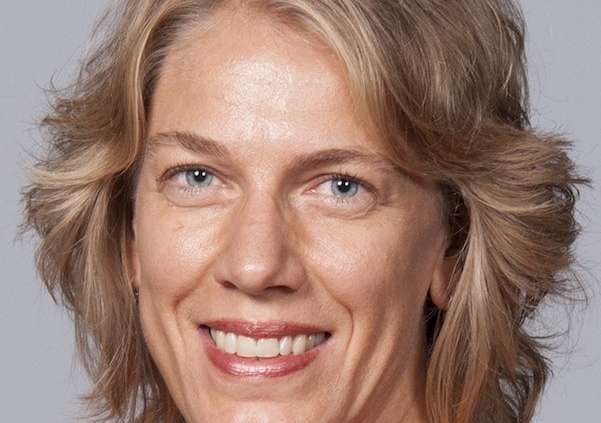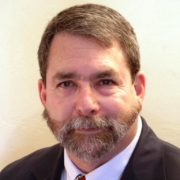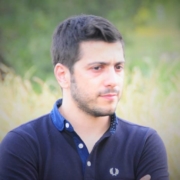Today we look at entrepreneurship education in Tanzania. You might be asking yourself, “Hey, didn’t FreshEd recently discuss entrepreneurship education in Rwanda?” You’re right. We did.
Obviously, the idea of entrepreneurship education is a global phenomenon, found in many different countries. As such, we need to understand what it is in each local context, who is promoting, how it is spreading, and what it means for education and society.
My guest today is Joan DeJaeghere. She has a new book out called Educating Entrepreneurial Citizens: Neoliberalism and youth livelihoods in Tanzania. For Joan, entrepreneurship education cannot be separated from neoliberalism, the contemporary form of capitalism that emerged in the 1970s.
Her book explores the multiple and contradictory purposes and effects of entrepreneurship education aimed at addressing youth unemployment and alleviating poverty in Tanzania.
Joan DeJaeghere is a Professor of Comparative and International Development Education in the Department of Organizational Leadership, Policy, and Development at the University of Minnesota.
Citation: DeJaeghere, Joan, interview with Will Brehm, FreshEd, 84, podcast audio, July 31, 2017. https://www.freshedpodcast.com/joandejaeghere/
Transcript, Translation, Resources:
Will Brehm 1:57
Joan DeJaeghere, welcome to FreshEd.
Joan DeJaeghere 1:59
Thank you, Will for having me.
Will Brehm 2:01
So, you’ve written a new book looking at entrepreneurship education in Tanzania, but before we get into some of the specifics on that case, I wanted to just ask about Tanzania in general. Some listeners might not know much about the country. I definitely do not. I’ve actually never been to Africa, so I don’t have too much knowledge on Tanzania. So, could you describe what contemporary Tanzania is like, just to frame the conversation we’re about to have?
Joan DeJaeghere 2:35
Sure. So before I comment directly on contemporary Tanzania, I’d like to just preface this talk by saying that really my primary interest in writing this book, and even in the study that I undertook in Tanzania is not really about the technical issues of entrepreneurship education, per se. But really, it’s about how global education ideas encounter local ideas and practices, particularly related to issues and problems of inequality. And in this case, really inequality of education completion and inequality of work opportunities, which I’ll talk about, are really relevant in the case of Tanzania. So, the book is really written from this perspective of how neoliberal and even liberal ideas and discourses move and are shaped and reshaped in this local context. And in regard to very specific problems and conditions, I think. So, to understand some of those specific problems and conditions, let me just say a little bit about Tanzania today. I think Tanzania is a very interesting place because its government and its governing policies continue to conjoin what we would call capitalist financial and economic policies with also socialist social policies. Meaning that they often aim to expand development and investment in sectors and industries that are really for the purposes of engaging in the global market. And at the same time, it has this very statist approach to development, and I think we’re starting to see this again in the new government, which means the state, in many ways, wants control over how international aid and investment are used to meet the goals and priorities of the state. So, for example, right now in Tanzania, one of the areas that’s getting a lot of attention is the expansion of agricultural production and agribusiness, as much of the population still really relies on agriculture for their livelihood. And I think this is really an attempt to engage in a global agricultural value chain. At the same time, government is really attempting – in this new government, particularly – to ensure that greater good and profit stays in Tanzania by cracking down on things like corruption of these international investments and things. So that’s really an example of the government trying to invest both in the country, but also control how that aid investment happens. And on the one hand, trying to engage both in economic growth policies and at the same time, ensure that it can address poverty alleviation, which on the one hand don’t necessarily go hand in hand in Tanzania, or in many countries, actually. So, for example, Tanzania has seen actually economic growth over the past decade of about six to seven percent. But the decline in poverty rates is actually less apparent; there’s been a decline, but it’s really less readily apparent, given the kind of economic growth it’s had. Which means really, that economic wealth is not very equally distributed. This all has ramifications for this kind of program and study that I did on entrepreneurship that I can talk about later. In addition, there’s always been economic growth and growth in labor markets. More jobs have actually been added in the informal sector than the formal sector. Which means that the pay remains low, that it’s precarious, that workers in these jobs don’t have real benefits. And this has actually real concerns for youth in Tanzania, which is really the object of my study. So, youth in Tanzania who are employed, 78% of them work in the informal economy. And I should say at the same time, an increasing number of youth are actually attending secondary education, but the kinds of jobs that are available to them are not necessarily related to that educational level. So that’s just a bit about the status of the economy and employment and youth education in Tanzania.
Will Brehm 6:42
So, what sort of jobs are included in the informal economy?
Joan DeJaeghere 6:47
Things like agricultural production, when it’s not for an agribusiness or for a formal business. “Informal economy” refers to any small household businesses that might not be formally registered or regulated by the government. Tanzanians are well known for having many, many household kinds of businesses. And that might include selling things like clothes on the street, or even clothes in my town or village, to engaging in agriculture production and then selling it in my local market. It also means things like young men and women who might be working in construction or other sectors, but they’re doing it as contract laborers and not necessarily as formally employed with a waged salary or with any kind of benefits. So, in the informal economy, there’s both the informal sector and there’s the informal work that’s done in the formal sector. And the informal work as ILO talks about it – the International Labour Organization – is really those kinds of jobs that are short term, low wage that not protected, but they were still in the formal economy. So, you might still be working for a formally registered business, but you have an informal job.
Will Brehm 8:09
And so, what about education then? How do you see this confluence of market capitalism – the embrace of market capitalism – with the legacies of the socialist past? How is education trying to balance these two different poles?
Joan DeJaeghere 8:30
That’s interesting, because I think Tanzania has a kind of Janus-faced relationship with both this market economy and the socialist ancestry or history, and also that comes out in schooling. So, while the majority of students actually attend government schools, for example, still only 34% of the population actually goes on to secondary education. And while that has increased since the colonial past, it’s increased even since Nyerere’s time, that’s still really quite low in terms of participation. And that’s only participation, that’s not actually those who are passing secondary education. And even the passing rates of those who are participating in secondary education is actually declining, because the tests each year change and get harder. And if you don’t pass secondary education, you can’t actually enter the formal labor market because one of the requirements often is that you hold a certificate in secondary education.
Will Brehm 9:39
Wow. Okay, so 34% go on to secondary school. That’s incredibly low.
Joan DeJaeghere 9:45
Yes, and yet that’s higher than what it had been.
Will Brehm 9:52
It’s interesting. Tanzania has the colonial past, it has the socialist past, and now it has the capitalist president. And obviously they’re mixing and matching it in interesting ways. Before we jump into this entrepreneurship education and looking at it more specifically, I just want to get a sense of what are development partners like the World Bank and the UN and NGOs. Do they play a big role in the education sector?
Joan DeJaeghere 10:28
Yes, and I guess, yes. Both historically, and today. But as I was saying, this kind of Janus-faced relationship. So, let me just say a little bit more about the decolonization period of Nyerere’s time. So Nyerere actually had this kind of policy of Ujamaa, very famously known for his Ujamaa policy, which was really about self-reliance, meaning that the government and the people of Tanzania were going to take care of their own development, and they were not going to rely on external aid as they had to do under the colonial past, or that the colonial past had actually disenabled them to actually pursue their own trajectory, both in education and development. But the irony of that time period in Nyerere’s decolonization period was that the secondary education system and the vocational education system were actually supported by the World Bank and other forms of international aid. Primary education was not; the government supported primary education. But secondary and vocational were highly supported by World Bank, even though Nyerere very much criticized the World Bank. And then when the economy plummeted in the 1980s, both in Tanzania, but actually across many countries in Sub Saharan Africa, and the country transitioned away from its socialist economy, Tanzania actually engaged even more with those international donors in what is well known as engaging in the structural adjustment programs and what my colleagues like Joel Samoff have said, it really in some ways, the coming to this kind of neoliberal policies, that many ways were very detrimental to education at the time because it required families and children to pay for attendance in secondary education. It was only this past year in the 2016 new education policy in Tanzania that they have now promised to provide free and compulsory secondary education. Now, of course, “free” should be always in quotes because there are always additional fees, even fees for the exam – to take the exam and pass the exam. Does that answer the question a little bit about the history?
Will Brehm 12:53
It does. My advisor when I did my PhD, Mark Bray, he always used to say, “Someone has to pay for education. Education is never free.” So “free is in quotes” makes a lot of sense to me. So, the 1980s, where the structural adjustment programs from the World Bank came in and the beginning of neoliberalism in many countries, like you said, is this when we see the rise of entrepreneurship education? Or is this a later phenomenon, kind of more 21st century?
Joan DeJaeghere 13:27
That’s an interesting question because entrepreneurship as a practice and as a discourse actually has a long history in Tanzania, even prior to the 80s. But what you did see in the 1980s – and other people have written about this – is that there was a sudden rise for people to start a secondary business or household enterprise during the ’80s, in part because they were not getting their full wages and they therefore couldn’t actually live off of their formal employment. Prior to the ’80s, Nyerere actually had outlawed a second form of work because he wanted to ensure that people were completely committed to their own primary form. If they were on the government payroll, they were to be on the government payroll. So, you see entrepreneurship as a practice, but you don’t actually see entrepreneurship education. And formal entrepreneurship education is just now actually being integrated into policy and practice. And it was in 2013 that the government actually created this national entrepreneurship training framework, working with the ILO (the international labor organization), so you were asking if international donors are present; ILO has a very present influence on the country in this regard. And so, they’ve come up with these outcomes and suggestions for curriculum at all levels from preprimary through tertiary education. Now, that’s not actually implemented yet, and unlike some countries like Rwanda and Mozambique where entrepreneurship is required throughout the curriculum, it’s not yet required in all aspects of Tanzanian curriculum. It’s actually just this year that I found out it’s now required as an elective in formal secondary ages schools for those who pursue the Business and Commerce study route. So, there are different routes, right, for Science or Arts, and Business and Commerce is one. And entrepreneurship is now an elective course that they can take related to that area in secondary school. And it is also required in some areas of higher education and vocational programs, so entrepreneurship is part of the curriculum. I want to say a little bit about the term, because we found this interesting in our study. When you look at the curriculum documents, they use the term ‘ujasiriamali’, which is actually a more recent Swahili term to be invented to try, encompass this notion of entrepreneurship. In part, it seems to distinguish it from what are you said was very common practice in people’s lives, right? So, people have all these household enterprises; those are known as biashara ndogo ndogo – a small business or a household business. But entrepreneurship is seen as something different. And so, they use this new word to talk about it. And I should say to listeners, as well as readers of the book, that really the book is not about necessarily a formal policy, as I said, because it’s not really holistically included in formal policy yet in Tanzania and curriculum. But it really is about how entrepreneurship is developed as a mindset and a certain sort of set of skills and practices that particularly NGOs, and non-formal programs bring into say vocational or even extracurricular, formal school settings.
Will Brehm 16:41
So, can you give us an example of that? How is entrepreneurship a mindset or of skills and practices that NGOs have brought into the landscape of Tanzania?
Joan DeJaeghere 16:52
Well that’s interesting, because in my view, as I look at entrepreneurship curriculum, and the research on this, to be honest, many of the skills and mindset are very common across countries in the curricula. And again, partially maybe because the ILO – and this goes to that kind of global influence – has influenced so much of the thinking around that. So, things like identifying value chains, we’re talking about capitalist global value chains here, although sometimes it’s also about local value chains; teaching skills around marketing products; creating types of products that will actually secure a new market or get higher prices. These are all skills that these young people that were part of these NGO problems that we have studied all learned. But then they also taught them things like a mindset around resilience. So, if you fail at this the first time, you’d better try again. Persistence. Persistence not only with customers, but persistence with just this kind of work that you need to do in order to survive in many ways. And I think the mindset also, and this is one that I discussed at length in the book, around taking responsibility for your own welfare. No one’s going to employ you because even though there are jobs that are being added, they’re usually not for these either secondary school leavers or secondary school completers even. And therefore, if you’re not going to be employable, you have to take responsibility for your own self-employment. So those are the kinds of, I would say skills and mindset, what some people have called, and what I call the book is kind of really promoting this notion of the Homo economicus – a person who’s completely oriented toward seeking and creating their own livelihoods, primarily for the purpose of profit. And most of these curricula focused on how to make a profit, teaching young people how to understand the basic financial literacy, and then eventually financial accounts of businesses, etc. But it goes beyond just creating your own livelihood and making a profit to actually taking care of your own livelihoods because there aren’t other social supports there to ensure that you can get out of poverty.
Will Brehm 19:06
So, it seems like the role of the state is pretty much absent in this sort of mindset.
Joan DeJaeghere 19:13
Yes. And even for many of these youth – I can say more about this later – but one of the programs targeted youth who were already out of school. So even the opportunity to get an education, the role of the state is missing there. The other program was an NGO program that targeted primarily NGO run schools. While there are definitely NGO secondary schools, there really still aren’t sufficient for the demand. So, the state is in some ways absent from that as well, even though the state still requires a national curriculum. So, the state isn’t even ensuring their ability to actually secure an education, much less to use an education for a job.
Will Brehm 20:01
And it makes me wonder … oftentimes, we think of public education, not only about giving the skills necessary for people to work in labor markets, but also this notion of social cohesion or citizenship – that somehow going to public schools binds people together, and we have a stake in the public system not simply for our own individual good, but for our collective good. So, I wonder what happens to the Tanzanian citizen in this sense?
Joan DeJaeghere 20:34
That’s an interesting question, because I think the book really takes up this question around whether the neoliberal mentality and discourse which is, I argue, so dominant in these programs and in entrepreneurship education curricula, and whether or not that fundamentally is creating a sort of neoliberal, as I said, this Homo economicus citizen. And I don’t really say so much that there’s a unique Tanzanian citizen that’s emerging, because I think that that’s to be seen. But I do think there’s a unique form of citizenship that’s emerging in these programs. But I have to say – and this was a surprise to me, both because this was a five year research project and through much of the analysis, spending a lot of time with the data and the analysis – that I don’t think it created just the purely neoliberal, economic citizen. What I show in this book is really what I call the double features, or the doubleness, of neoliberalism as it meets this socialist … And not the pure socialism of Nyerere’s time but a socialist remnant that remains in the community for many of these young people where they … Maybe if I can give an example of this, and it may jump to some other questions. On the one hand, these youth are to create their own enterprises. That’s the primary goal, for especially these youth who are out of school and are in a non-formal program. And they are to create the enterprise and hopefully they will be making a profit from that enterprise. And from that profit, ideally you would reinvest a little bit more so that you could expand or make a larger enterprise. I mean, that’s the logic of entrepreneurship, is profit expansion. Potentially hiring other people, so that creates some form of economic growth. We know from a lot of literature, actually, that a lot of these problems particularly targeted, that marginalized youth and women etc., don’t end up actually producing a lot of profit. Nor do they end up actually producing a lot of new enterprises or new jobs. But these young people, for those who did make whatever little bit amount of money that they could from these enterprises, would then turn it around and reinvest it in their own family. So, their own siblings’ education, or their own family’s health care. Some of them would reinvest it by trying to hire their friend because they knew their friend had no opportunity for work. So, on the one hand, yes, there was a job created. But it’s not really a job in any formal market. It’s not being counted in the statistics. But it was to help another person get by. And so, what I argue in many ways in the book is that this entrepreneurship as these young people took it up, was creating a citizen that actually could try to make more claims on to Tanzanian society for more social and economic well-being. At the same time, they were actually being created in some ways as a neoliberal citizen. And I can say more about that at another point.
Will Brehm 24:04
So that’s the doubleness that you talk about.
Joan DeJaeghere 24:07
Yes. And I that’s really one of the key terms. If I could say a little more about it, there’s a couple of people and ideas that really influenced this book around thinking around neoliberalism as this global idea, and as it meets the local. And how to try and think about that, given them this example that I just talked about. How do these youth actually practice in their lives? And one of them actually is James Ferguson’s work on neoliberalism in Sub Saharan Africa, where he talks about that there really are many forms of neoliberalism. And so, in the book, I use the plural “neoliberalisms” to try and understand what forms this takes in Tanzania and in these specific communities, because I’m not talking about all of Tanzania and I’m not talking about just Tanzanian government policy. I’m talking about these communities for these youth. And another book that really informed my thinking was one called The Moral Neoliberal by Andrea Muehlebach. And she talks about this double nature of neoliberalism that, on the one hand, is this receding state that doesn’t support citizens. But in place, it creates these other kinds of apparatuses for citizens themselves to provide for the social support and care of the citizens. And then the third kind of idea, I think, that I really examine and are using in this book to examine neoliberalism is Anna Tsing’s notion of friction around globalization and friction. And really, that’s about how it’s not just that global ideas are borrowed and taken up, I think that they’re actually reshaped. And she talks about it as friction, meaning they encounter local practices and in that friction, some things are lost and some things new come out of it. And I think one of the challenges in this book was for me to try and understand what was the new piece that was coming out? And was it necessarily a more positive or a more negative orientation to this neoliberal entrepreneurial citizen?
Will Brehm 26:08
And it was both in a sense, the finding?
Joan DeJaeghere 26:11
And it was both, yes.
Will Brehm 26:12
There are some positives and there are some negatives, and in this new form of citizenship, this unique Tanzanian citizenship, maybe not citizen, but citizenship.
Joan DeJaeghere 26:23
Yes.
Will Brehm 26:24
So, what’s interesting is this doubleness in neoliberalism and how it operates through the school system, and how these global partners might help transfer certain ideas, but then they get localized and indigenized. And I just want to know, are you skeptical of issues like when you see entrepreneurship education, and you say that the policies are still emerging in Tanzania. The language might be there, but there’s no real policy documents. They’re just beginning to articulate them inside policy documents on how entrepreneurship education will actually look in practice, or supposedly look in practice from the policy documents’ side. And I’m just wondering, are you skeptical that this is the intention of the policymakers who probably are being advised by development partners? Are you skeptical that they will be able to achieve the intended outcomes that they have?
Joan DeJaeghere 27:30
Yes, I am. And I was skeptical from the beginning. As I start the book, I say how I was, in many ways, really worried about the future of these youth, because I was worried it was going to create this sort of singular economic person who actually met a dead end. Meaning that they were trained in a certain way to be an entrepreneur, but they had very little opportunity to develop an enterprise that was actually going to flourish and support them. So, I was very concerned about that from the beginning. And I think the purpose in writing this book, back to your larger question, I think was to actually reflect on how development organizations and even very specifically the foundation that funded this work, need to think about the purposes of these kinds of programs. Not only the purpose, but then therefore what do they need to do to address some of the constraints that these young people face in order to actually have better well-being and not just start an enterprise? Usually these programs are very limited to just trying to say, “Okay, we’re going to make sure that people are employed”. So, the NGOs that were implementing these were like, “We want to have 100% employment of all the youth who go through this program”. Now that could have meant starting their own enterprise, or working with an apprentice, or maybe even working in the formal economy. And I think, as we said, at the end of this project, to many of them in a meeting, we said, “I think this project made them and all of us much more humble”. To recognize, first of all, that that isn’t necessarily the most achievable end. It’s not to say that young people didn’t start enterprises. And it’s not to say that some didn’t make money. But I think that that’s the wrong purpose. Or maybe for this problem of saying that you’re going to solve unemployment through entrepreneurship. Because so many of these young people are not employed because they are excluded in society in so many other ways. And that’s why I bring together this concept of citizenship as well in this book. The larger issue is that they’re excluded from society. Excluded because they haven’t been educated to the extent that they need to be in formal education. They’re excluded because even if they start a household enterprise, they often don’t have enough community recognition, because of who they’re seen as youth, to be able to get the kind of customers, etc. that they need. So, the purpose really was then to try and say to these donors and things, “Well, what do you aim to achieve? And how can you measure that better? And how can you then plan in your implementation to achieve that better?” And one of my primary arguments is that the good that came out of this program was that it actually did achieve greater inclusion of these youth. But if it does achieve greater inclusion in their communities, etc., then we need to be able to be attentive to that by trying to address some of these barriers of exclusion that are exclusion in the labor market, that are exclusion in the education sector.
Will Brehm 30:49
Yes, it’s like the unemployment, it’s really a symptom of a larger issue, a larger problem.
Joan DeJaeghere 30:59
Very much so.
Will Brehm 31:00
And by focusing on entrepreneurship education as a way to solve the unemployment, there might be some truth in that, but people will still be excluded in other ways even if they have certain informal jobs.
Joan DeJaeghere 31:15
Right. So, for example, one of the things that came out of this project from year one, and we shared it with the NGOs repeatedly, was how gender discrimination really kept a lot of these women out of both formal employment and even self-employment. When they had customers, they faced so much discrimination and harassment. And so drawing attention to those kind of factors of exclusion and discrimination are really important. But those were not on the radar of the funder. They were not on the radar of the NGOs when we started this project. But they are other forms of exclusion that very much affected whether or not these young women would be able to achieve what they wanted them to achieve, which is to be employed or earn money. In fact, in one of the countries, not Tanzania. Well, it did happen in Tanzania but it’s not the program that we talked about in the book. But the project also took place in Kenya and we saw many of the young women, while they were trained in this entrepreneurship and much more broadly livelihood program, more holistic program, they would get these technical skills and other life skills, etc. And then they would go out to the formal labor market, start working, be confronted with this discrimination, and many of them actually then would pull themselves out of those jobs and returned to education as a pathway, an alternative pathway, to both avoid the discrimination and the exclusion they were facing, and hope that they were going to continue to get more certification, more skills, to be able to eventually get better paying, more stable jobs.
Will Brehm 32:47
Do you think that the neoliberal discourse that is obviously very apparent in this entrepreneurship education, do you think it blinds people to other issues like gender discrimination that you were talking about?
Joan DeJaeghere 33:03
Yes, I do. Because I think donors and funders, and even the NGOs are so oriented towards economic outcomes. And a lot of the evaluations of these programs also are. And so the framework that we really used in this project was one of – and I explain it briefly in the book – around capability approach, but really trying to look at the larger well-being that these this kind of work was achieving for these young people. So, it isn’t just about whether or not they had a job, because they might have had a job and three months later, they didn’t. Or they had a job, but they weren’t getting paid on a timely basis. So, their well-being and their actual sustainability of that work did little for them in getting them out of poverty or helping to sustain their family. So even though I talked earlier about how these youth often use that money for more positive means, for being included in society and achieving social good for other people, the programs themselves were not as oriented toward that social good. But the doubleness of this program in many ways was that the youth then reinterpreted it to try to address more of their social goals. We oriented our analysis in that way, but they actually led us to that. Because they kept saying, “Well, we’re not making much money, but what money we’re making, we can use to make sure that my younger sibling is educated” or what have you. So, we were able to then look at a much broader sense of what we would call wellbeing and sustainable livelihoods, than much of the literature does.
Will Brehm 34:38
Well Joan DeJaegher, thank you so much for joining FreshEd. It really was a pleasure to talk today.
Joan DeJaeghere 35:43
Thank you Will.
Entrepreneurship education in Tanzania










